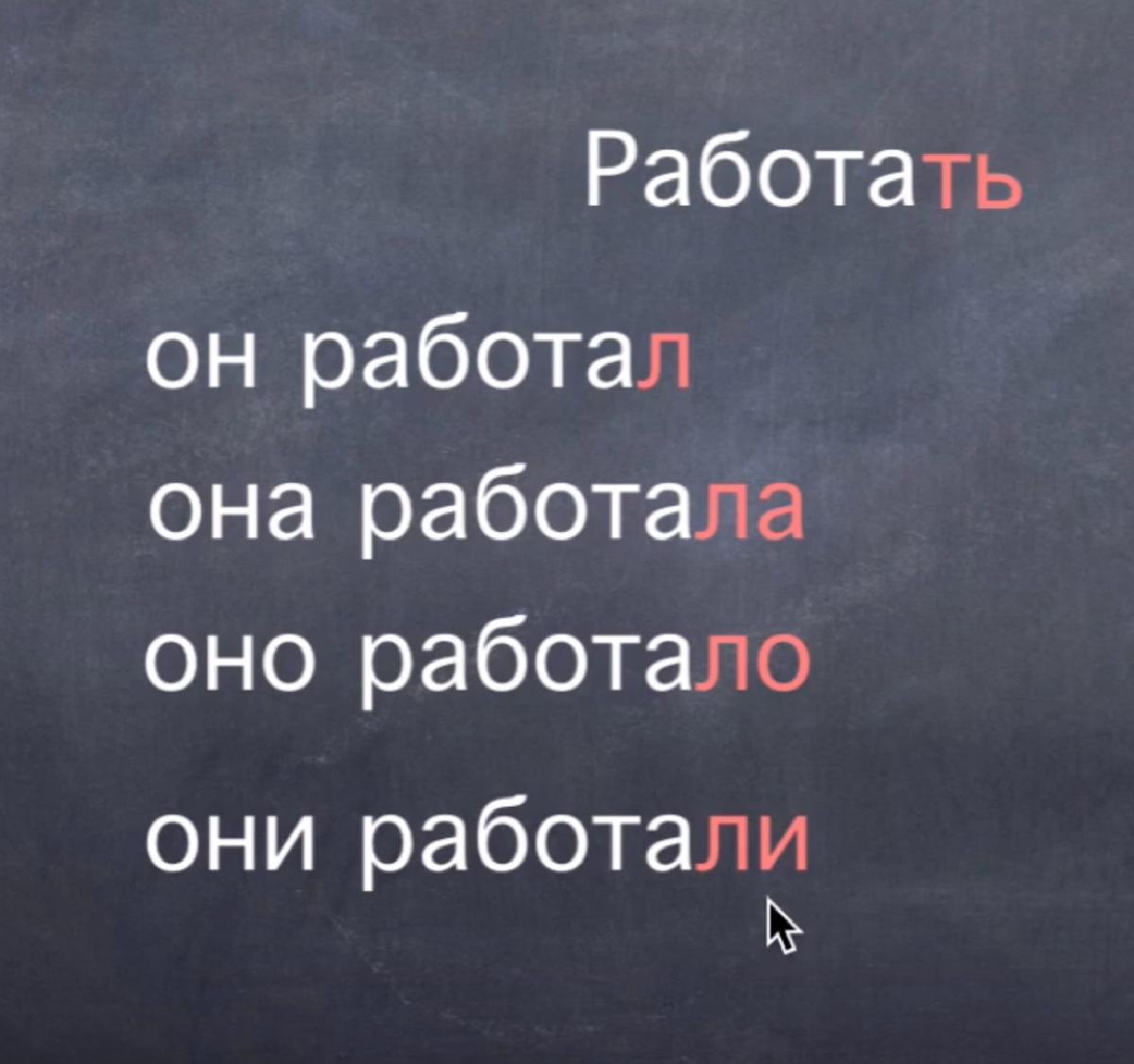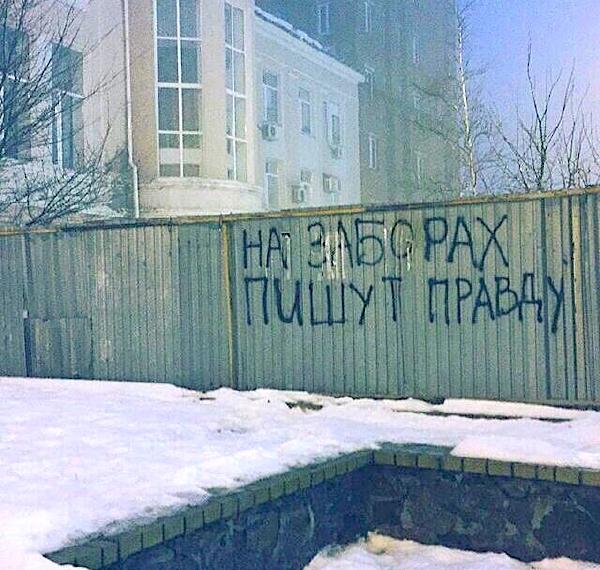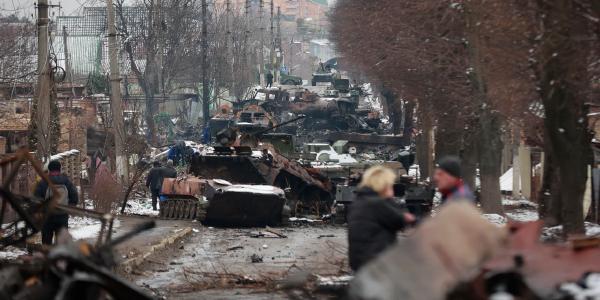Past Tense
Forming the past tense (прошедшее время) in Russian is very simple. Perhaps the easiest aspect of the entire Russian grammar. The number of variations is limited, and conjugations are not complicated.
Three Forms (or Actually Four)
Masculine, feminine, and formal or plural: verbs in the past tense take on only three forms. Or actually four, but the form for оно (it) is rarely used. After all, an оно doesn’t (or didn’t) do much.
Gender and Number
You could also say that past tense conjugations only take gender (masculine or feminine) and number (singular or plural) into account. They do not change by person. The forms for we, they, and you (formal) are the same. I, you, and he/she take the same form if the gender matches. In Russian, when you see “I thought” or “you said,” you immediately know whether it was a man or a woman. Unlike in the present tense, these forms are different.
Stem + л, ла, ли (or ло)
To form the past tense, you first need to find the stem of the verb. You often do this by removing the last two letters. (Also see: Rule 7: Finding the Stem on 8 Simple Rules for Russian Verb Conjugation, ThoughtCo. 2018). You then attach л, ла, or ли to it (or sometimes ло), and that’s it.
I (m) thought: я думал. From думать (to think), дума (stem) + л, ла, or ли. He thought: он думал. You (m) thought: ты думал. If the subjects are female, думал becomes slightly more elegant as it changes to думала.
You said: ты сказал (m.) ты сказала (f.)
Online Russian Class, Past Tense
(Anya Golubeva, 2019, 8 m)
Learn Russian Grammar, Глаголы 11
(LearnRussian.org, 2016, 9 m)
Forming the Past Tense in Russian
(Russian grammar, 2015, 4 m)
Past tense of the Russian Verbs
(RussianPlus, 2009, 10 m)
More
- Beginning Russian I: The Past Tense: Introduction (Amazing Russian, 2020, 9 m)
- Past Tense in Russian (Russian Icebreakers, 2020, 4 m)
- Past Tense in the Russian Language (Tzar Medved, 2020, 6 m)
- Leave and Forget in Russian. Perfective verbs in Past Tense (Daria Mikhay, 2019, 8 m)
- Learn Russian Past Tense (Alfia, 2019, 9 m)
- Online Russian Classroom: Past Tense Verbs (College Russian, 2019, 11 m)
- Past tense of Russian verbs / forming and usage (Live Russian, 2018, 13 m)
- Past tense is the easiest thing in Russian (Russian to the world, 2018, 5 m)
- Russian language grammar: verbs in the past tense (Elen Sheff, 2018, 14 m)
- Russian Past Tense (Be Fluent in Russian, 2017, 7 m)
- Yesterday – Russian Past Tense (Russian Lessons, 2016, 2 m)
- Verbs. Past tense. Russian grammar (Ru-Land Club, 2016, 7 m)
- Learn Past tense with Russian music (R for Russian, 2016, 74 m)
- Russian grammar – Past Tense, прошедшее время (Antonia Romaker, 2016, 15 m)
- How to Form Past Tense in Russian (Fun Russian, 2014, 5 m)
Help/Reference
- Formation of the Past Tense (Russian Learn)
- How to Learn and Master Russian Past Tense Verbs (Live Fluent)
- Past Tense in Russian language (Russian Lesson Online)
- Past Tense of Russian Verbs (Study Russian Online)
- Russian/Grammar/Past tense (Wikibooks)
- Russian Past Tense – Russian Verbs (Russian Lessons)
- The Past Tense in Russian (Master Russian)
- The Past tense of Russian verbs (Learn Russian Step by Step)
last edited 26-10-2020
More






